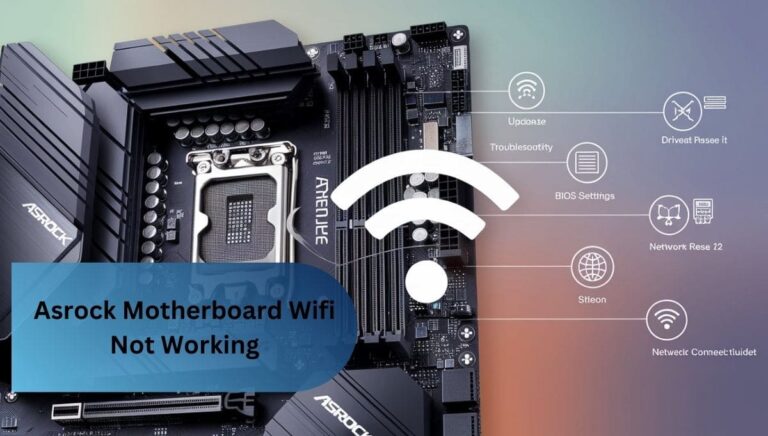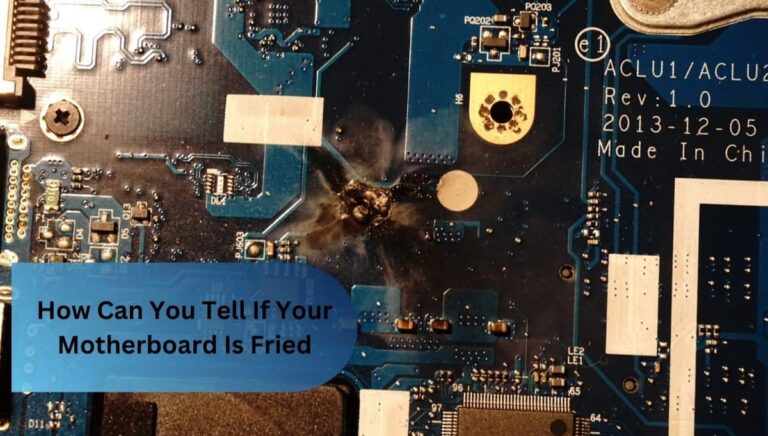Does Any Power Supply Work With Any Motherboard – A Guidance!
In my experience, not all power supplies fit every motherboard, so it’s crucial to check the connector types and wattage. I once mismatched a PSU and motherboard, leading to compatibility issues, which taught me to double-check specifications before purchasing.
No, not all power supplies work with every motherboard. You need to check the form factor and connectors to ensure compatibility.
Introduction Does Any Power Supply Work With Any Motherboard
When considering the question, “Does any power supply work with any motherboard?” Each motherboard has specific requirements regarding connectors and power ratings, which affects whether a power supply will function correctly.
Therefore, understanding the details of “Does any power supply work with any motherboard?” is crucial for building a reliable system. Always verify that your chosen power supply meets the specifications outlined for your motherboard to avoid issues.
Understanding Power Supply Compatibility With Motherboards

1. Power Supply Connectors and Form Factors:
Power supply connectors and form factors are essential for ensuring compatibility between the power supply and the motherboard. Common form factors like ATX require specific connectors for power delivery, so checking these details is vital before making a purchase.
Read Also: Do Motherboards Come With Bluetooth – What You Need To Know!
2. Power Supply Wattage and Efficiency:
- Wattage Matters: The total wattage of the power supply should meet or exceed the combined power needs of all components in your system to ensure stable performance.
- Choose Wisely: Opt for a power supply with higher wattage if you plan to upgrade components later, especially graphics cards or processors.
- Efficiency Counts: Look for power supplies with good efficiency ratings, as they waste less energy and produce less heat, leading to a longer lifespan and lower electricity bills.
3. Modular and Non-Modular Power Supplies:
Modular power supplies allow you to attach only the cables you need, helping to reduce clutter and improve airflow inside your case. In contrast, non-modular power supplies come with all cables permanently attached, which can make cable management more challenging.
Choosing The Right Power Supply For Your Motherboard

Choosing the right power supply for your motherboard is crucial for ensuring system stability and performance. Start by checking the motherboard’s form factor and connector requirements to ensure compatibility. Next, assess the total wattage needed based on your components, and consider whether a modular or non-modular power supply best suits your build.
1. Key Points to Consider:
- Form Factor: Match the power supply’s form factor (like ATX) with your motherboard to ensure a proper fit.
- Connector Types: Verify that the power supply has the necessary connectors, such as the 24-pin main connector and any additional CPU or GPU connectors.
- Wattage Needs: Calculate the total wattage your components will require, factoring in potential future upgrades.
- Choose a modular power supply for tidy cable management and flexibility, or opt for a non-modular one if you’re looking for a more affordable choice.
Considering Power Supply Upgrades And Replacements
1. Check for Form Factor Compatibility:
Check the form factor of your motherboard to ensure it matches the power supply you choose. Common types like ATX, Micro-ATX, and Mini-ITX each have specific requirements, so confirming compatibility is essential for a proper fit.
2. Check Power Supply Connectors:
- Identify Required Connectors: Look at your motherboard to see what power connectors it needs, like the 24-pin main connector and any additional CPU or GPU connectors.
- Verify Compatibility: Ensure the power supply you choose includes all the necessary connectors for your components, as missing connections can prevent your system from working.
- Consider Future Upgrades: If you plan to upgrade your hardware later, select a power supply with extra connectors to accommodate potential new components.
3. Consider Wattage and Efficiency:
When choosing a power supply, consider the wattage to ensure it can support all your components without overloading. Additionally, look for a power supply with high efficiency ratings to save energy and reduce heat generation, which helps prolong its lifespan.
Compatibility Of Power Supply And Motherboard

The compatibility of a power supply and motherboard is vital for building a functional computer. To ensure they work together smoothly, you must check the form factor, connector types, and wattage requirements. Proper compatibility prevents issues like inadequate power delivery or improper fit, leading to a more stable and efficient system.
Read Also: Pcie Bifurcation Motherboard List – A Comprehensive Guide!
1. Key Compatibility Factors:
- Form Factor Match: Ensure the power supply’s form factor aligns with the motherboard’s size and shape for a proper installation.
- Connector Requirements: Verify that the power supply has the specific connectors needed for the motherboard, such as the main 24-pin connector and CPU power connectors.
- Wattage Considerations: Check that the power supply provides enough wattage to support all components, allowing for potential upgrades in the future.
FAQ’s
1. Can I replace my PSU with any PSU?
You can’t replace your PSU with just any power supply; it must be compatible with your motherboard and components. Check the form factor, wattage, and connector types to ensure a proper fit and function.
2. Can motherboard damage power supply?
Yes, a motherboard can potentially damage a power supply if there is a short circuit or a component failure. This can cause the power supply to overheat or malfunction, leading to further issues in the system.
3. How to select a power supply?
To select a power supply, first determine the wattage needed by adding up the power requirements of all your components. Then, check for compatibility with your motherboard’s form factor and connectors to ensure a proper fit.
4. What does ATX mean in power supply?
ATX stands for Advanced Technology eXtended, which is a standard for motherboard and power supply sizes. It defines the dimensions, mounting points, and power connectors to ensure compatibility in computer systems.
5. Will motherboard power up without CPU?
A motherboard can power up without a CPU, meaning the lights and fans may run. However, it won’t function properly or boot up any operating system since the CPU is necessary for processing tasks.
Conclusion:
Not every power supply is compatible with all motherboards, so it’s essential to check factors like form factor, connector types, and wattage. Ensuring that your power supply matches your motherboard’s specifications will help create a stable and efficient computer system.
Taking the time to verify compatibility can prevent future problems and ensure your setup runs smoothly.
Read More:






